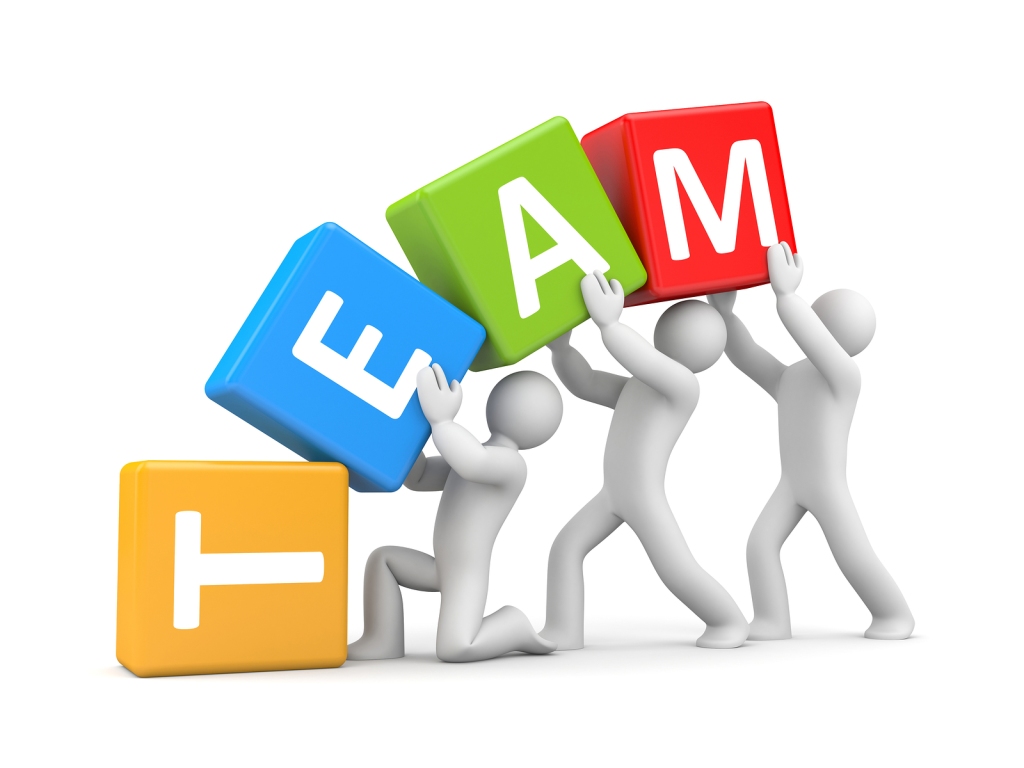“One is too small of a number to achieve greatness.”
John C. Maxwell
Teams are essential in every aspect of life. Whether you’re working on a deadline, organizing a community project, or coordinating schedules, everyone must be willing to work as a team. Teams allow us to work towards accomplishing our desired goals, objectives or tasks. Everyone is part of a team. If you are married, you are part of a team with your spouse.
If you are employed, you are part of a team with your colleagues. If you give your time to a church or organization, you are part of a team of volunteers. Being a part of a team in some capacity is inevitable. We celebrate great human achievement and often view a single person as the hero of a great accomplishment. However, if you look below the surface, you will see that most solo acts are team efforts.

As an Executive Director with the John Maxwell Team, working with various teams is a big part of my business. My basic knowledge and ideas come from leadership expert and author, John C. Maxwell. This article will provide the path for you and your team to understand how to build a strong team and how successful collaborations works.
Successful companies need strong TEAMs! Without a strong team, you may accomplish little, but you won’t accomplish anything significant. So what makes a strong team?
T – TRUST
“A team is not a group of people who work together. A team is a group of people who trust each other.
Simon Sinek
You can’t build a team without trust. Trust is the emotional glue that binds a team together. If you don’t trust someone, you don’t have confidence in that person. Without confidence, you can’t achieve anything of value.
What builds trust?
- Consistency. People must learn to trust you. The more the team spends time together, the more trust they will develop.
- Loyalty. I believe that loyalty to your team is critical. I will publicly defend my team members before I even know what the issue is. Loyalty builds trust.
You’ll know when your team significant to trust each other because you’ll see them delegate to other team members.
E – ENERGY
“You give life to what you give energy to.” –
Unknown
You and your teams are doing work with goals and objectives that will ultimately achieve the vision. That’s why I encourage you to have what I call “relaxed concern.” In other words, while you need to recognize that success and failure hang in the balance for many teams, no one should be tightly wound all the time.
You must understand that teams work hard, the energy is high, and the results are impressive. However, if you don’t manage the activities and provides the necessary resources, you’ll burn the teams out quickly. I have seen this happen in many companies, churches, and organizations.
People give their best effort, and it continues for long periods and many roadblocks and walls. Their problem isn’t that they’re not dedicated enough, but instead they don’t kknow when to relax.
A – APPRECIATION
Dear Team, You are all amazing; keep up the great work!”
Unknown
Appreciation means to raise in value. It’s the opposite of depreciation. If you’ve ever bought a new car, you know it depreciates the moment you drive it off the car lot—it goes down in value.
Appreciation means you raise the value of something. When you show appreciation for a spouse or a child, you’re increasing their value. The same is true for your workforce or volunteers. The more appreciation you express, the more you’ll improve the value of their efforts.
How do you do that?
- Affirm their efforts. Make a point to notice and recognize publicly what your TEAMS are doing well.
- Affirm their loyalty. Let your team know that you appreciate the time and effort spent on the projects or activities.
- Affirm their uniqueness. Every team member is different. Let them know you see those differences as strengths that help your teams work effectively.
- Affirm their ideas. Your teams will be as creative as you allow them to be. Let them know you appreciate all ideas so they will continue to share them.
M – MISTAKES
“Your best teacher is your last mistake.”
Denis Baker
Mistakes are useful—they teach us what doesn’t work. Any creative team will make mistakes. If there are never any mistakes, is the team being creative?
SUMMARIZE
Teams are a way of life; we can’t survive without teams. To excel in life and our profession, we need to be a good team member and leader. By building strong teams, we can create success. Let’s soak up all the qualities and skills of each team member to create the most energetic team possible!
